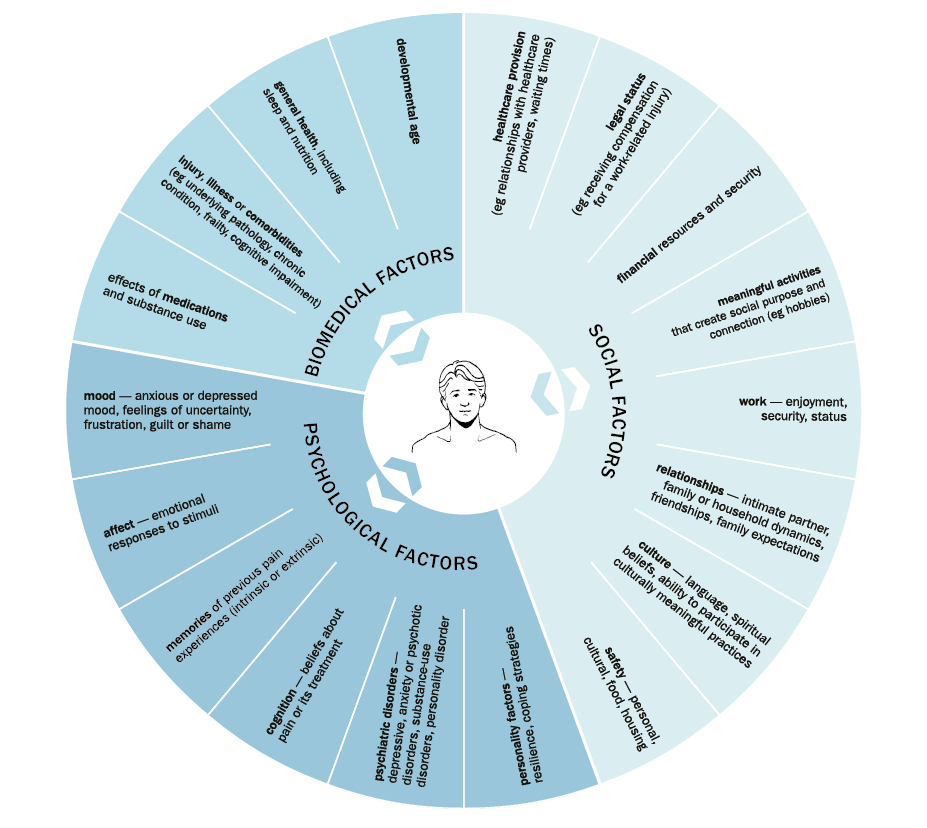Sociopsychobiomedical (biopsychosocial) understanding of pain
A sociopsychobiomedical (also known as biopsychosocial) framework helps clinicians understand the complexity of their patient’s pain experience, and lays a foundation for assessment and more effective pain management. The way a person processes nociceptive signals in their brain, and their resulting pain experience, depends on their developmental stage (eg infancy, adolescence, adulthood), the social and cultural context (socio-), their emotional state (psycho-) and their biological health (-biomedical). A sociopsychobiomedical approach considers the bidirectional relationship between these factors and the person’s pain experience to determine strengths, and areas that may need support during management; see The sociopsychobiomedical context
of the pain experience.
[NB1]

Note: NB1: Each of these factors
has a bidirectional relationship to pain—pain can
impact any of these areas and any of these areas can
worsen or prolong the pain experience.
